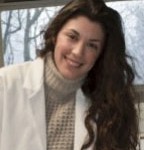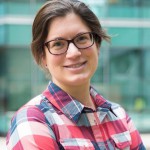|
|
|
|
| We would also like to take this opportunity to thank our previous Editorial Board Chair, Seth Marder, for eight years of service on Materials Horizons since its launch. He looks back on the first eight years of the journal: |
|
|
|
|
|
|
|
| We would also like to take this opportunity to thank our previous Editorial Board Chair, Seth Marder, for eight years of service on Materials Horizons since its launch. He looks back on the first eight years of the journal: |
|
|
|
General information
The purpose of the Community Board for both Materials Horizons and Nanoscale Horizons is to provide a channel for communication between the materials and nanoscience student and early career researcher community and the journals’ Executive Editor and Editorial Boards, and also to facilitate student and postdoctoral (or equivalent) engagement with Materials Horizons and Nanoscale Horizons. We are looking for engaged and interested early career researchers who will see this as an opportunity to assist in the development of an innovative journal, from a learned society publisher, in rapidly expanding areas of science. We are inviting nominations for both journals at this time, please do feel free to state a preference of journal in your nomination, however this is not mandatory and each nomination will be assessed for suitability for both Materials Horizons and Nanoscale Horizons Community Boards.
Guidelines for Nominators
We are inviting nominations for both journals at this time, please do feel free to state a preference of journal in your nomination, however this is not mandatory and each nomination will be assessed for suitability for both Materials Horizons and Nanoscale Horizons Community Boards.
To make a nomination please provide the information outlined below to materialshorizons-rsc@rsc.org.
Selection criteria for Materials Horizons and Nanoscale Horizons Community Boards
The Executive Editor and members of the Editorial Boards will consider the following aspects of all nominations for the Community Boards as appropriate:
Materials and Nanoscale Horizons Community Board_FAQs
The deadline for submission of nominations is 27th January, 2020.
For more information about the journal and for a list of current Community Board members, please visit the journal webpage at: rsc.li/materials-horizons
Professor Martina Stenzel, from The University of New South Wales and one of our excellent Scientific Editors, has been elected as a Fellow of the Australian Academy of Science!
As a world-leading researcher in polymer chemistry and its applications, she has provided vital support to Materials Horizons by upholding the stringent requirements of exceptional significance.
Here in a video recorded for the Australian Academy of Sciences, she discusses her research and motivations: https://youtu.be/NBD6L5dj_dc
Check out some of her recent articles:
Spatially resolved coding of λ-orthogonal hydrogels by laser lithography, Chem. Commun., 2018, 54, 2436-2439
Entry of nanoparticles into cells: the importance of nanoparticle properties, Polym. Chem., 2018, 9, 259-272
Penetration and drug delivery of albumin nanoparticles into pancreatic multicellular tumor spheroids, J. Mater. Chem. B, 2017, 5, 9591-9599
The living dead – common misconceptions about reversible deactivation radical polymerization, Mater. Horiz., 2016,3, 471-477
We are delighted to have many world-leading materials science researchers on our Editorial Board and on our Advisory Board, helping to guide Materials Horizons as a premier journal publishing first reports of exceptional significance.
Many have been recognized in Clarivate Analytics’ recently published 2017 Highly Cited Researchers list!
Congratulations from the Materials Horizons team to…
…Editorial Board members
…and Advisory Board members
Click on their names to check out some of their most recently published work in Materials Horizons.
If you think you might have some work that represents a brand new concept of exceptional significance then get in touch on materialshorizons-rsc@rsc.org.
Last year, we launched the first early career researcher Board for Materials Horizons, the Community Board. Since then, these Board members have provided invaluable feedback regarding journal activities, as well as being ambassadors for the journal. Based on this success, we have expanded the Community Board, through requesting nominations from our Board members, as well as the wider academic community.
We are now delighted to announce the new and expanded Materials Horizons Community Board. Many of our original Board members from last year are continuing to serve for a second term, and now the Board consists of an international set of 33 researchers at different stages of their early careers, ranging from PhD candidates to Associate Professors.
Read more about our Board members below. We have also introduced the Nanoscale Horizons Community Board, find out more here.
| Sarit Agasti | |
 |
Sarit received his Bachelor’s degree in Chemistry from the University of Calcutta, in 2003 and then his Master’s degree from the Indian Institute of Technology, Kanpur in 2005. Sarit went on to receive his PhD from the University of Massachusetts at Amherst under the supervision of Professor Vincent M. Rotello. Since his PhD, he has been a Postdoctoral Fellow at both the Massachusetts General hospital-Harvard Medical School and the Wyss Institute at Harvard University working with Professor Ralph Weissleder and Professor Peng Yin, respectively. Sarit has now returned to India and is working as a Faculty fellow at the Jawaharlal Nehru Centre for Advanced Scientific Research. His lab is interested in engineering small molecules and programmable molecular materials to address challenges in bioimaging, specifically in super-resolution microscopy. |
| Athina Anastasaki | |
 |
Athina received her Bachelor’s degree in Chemistry from the National and Kapodistrian University of Athens. She then undertook a PhD in Polymer Chemistry at the University of Warwick under the supervision of Professor David Haddleton. She then undertook the position of a Monash-Warwick Alliance Research Fellow in the research groups of Professor David Haddleton and Professor Thomas Davis, focusing on controlled living radical polymerization methods, mechanistic studies, photochemistry and sequence-controlled polymers. Currently, she is an Elings Fellow working alongside Professor Hawker at the University of California, Santa Barbara (UCSB). |
| Maartje Bastings | |
 |
Maartje Bastings studied Biomedical Engineering at the Eindhoven University of Technology (TU/e) and graduated Cum Laude in the group of Prof. E. W. (Bert) Meijer, where she continued her Ph.D. program funded by a Toptalent Fellowship from the Dutch Science Foundation (NWO). Her research focused on the understanding of multivalent binding mechanisms for directed targeting and the development of supramolecular biomaterials. She was awarded the University Academic Award in 2013 for best Ph.D. thesis at the TU/e. She moved to the Wyss Institute of Harvard University in Boston as a NWO Rubicon and Human Frontier Science Program postdoctoral fellow in the lab of Prof. William M. Shih. She studies DNA as a programmable biomaterial to design immune responses and assemble into multimodal nanoparticles. In January 2017 she will start as tenure track Assistant Professor in the Materials Science and Engineering Department at EPFL, Switzerland. |
| (more…) |
 Last year, we announced the first ever early career researcher advisory board for Materials Horizons. This Board is unique in that it is made up of early career researchers, such as PhD students and postdocs, who are fundamental in the future development of the materials field.
Last year, we announced the first ever early career researcher advisory board for Materials Horizons. This Board is unique in that it is made up of early career researchers, such as PhD students and postdocs, who are fundamental in the future development of the materials field.
Since then, the members of the Community Board have provided invaluable feedback and advice to the Editorial Office.
Based on its success so far, we are now looking to expand the Community Board.
Are you interested in helping shape a journal publishing cutting-edge research of exceptional significance? Do you have ideas on how high impact journals can engage and support early career researchers? If so, please get in touch!
Simply ask your Principal Investigator to submit your nomination with the information outlined in the documents below to materialshorizons-rsc@rsc.org.
If you have any questions at all, please contact materialshorizons-rsc@rsc.org. We look forward to hearing from you!
Materials Horizons Community Board – Call for Nominations
Materials Horizons is thrilled to announce that the first researchers have joined our Materials Horizons Community Board. This board is unique in that it is made up of early career researchers, such as PhD students and postdocs, that are fundamental in the future development of the materials field.
This board will help build relationships with the young researcher community, providing the editorial office with not only essential feedback and advice on the perception of the journal in their community but also education-focused initiatives that will benefit the materials community as a whole.
These engaged and enthusiastic researchers have been nominated by the Materials Horizons and Journal of Materials Chemistry A, B & C Editorial and Advisory Board. We received several excellent nominations and the successful candidates are:
Please join us in congratulating the new members of the Materials Horizons Community Board.

Materials Horizons would like to welcome Bruno Chaudret as our newest Scientific Editor.
Bruno has a wealth of experience having co-authored over 400 publications and being the recipient of several prizes including the Gay-Lussac – Humboldt Prize and the Wilkinson Prize of the RSC. He graduated from École Nationale Supérieure de Chimie de Paris in 1975 and then went on to receive his Ph.D. from Imperial College London in 1977 with Sir Geoffrey Wilkinson. He was awarded the degree of a “Docteur ès Sciences” at the University of Toulouse in 1979.
He is now “Director of Research CNRS”, Director of the “Laboratoire de Physique et Chimie des Nano-Objets” in Toulouse and a member of the French Academy of Science since 2005.
His interests have been in the chemistry of hydride and dihydrogen organometallic complexes, and in the early 90s, he developed an organometallic method for the synthesis of metal or metal oxide nanoparticles.
We very much look forward to working with him!